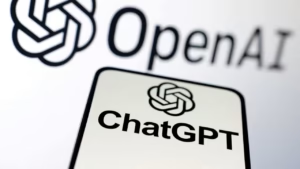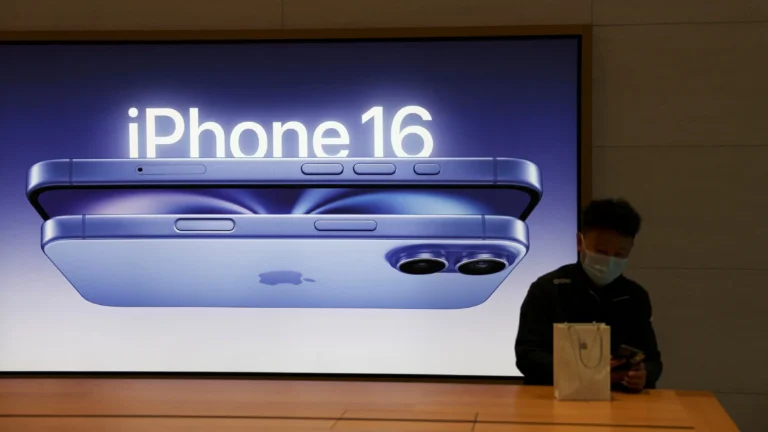HardyAI (Trí tuệ nhân tạo)
Hardy News cung cấp thông tin chuyên sâu về các xu hướng công nghệ và đổi mới mới nhất, tập trung vào những tiến bộ trong Trí tuệ nhân tạo, những đột phá về học máy, ứng dụng thực tế và thảo luận về đạo đức trong kỷ nguyên kỹ thuật số.

Our Top Picks
Ôm mặt cho thấy việc tăng tỷ lệ thời gian thử nghiệm giúp các mô hình ngôn ngữ nhỏ vượt quá trọng lượng của chúng như thế nào
admin 6 months ago
Trong những năm gần đây, các mô hình ngôn ngữ đã trở thành nền tảng của trí tuệ nhân tạo,...
Các nhà điều hành Web3 cho biết năm 2025 sẽ là năm của các đại lý AI
admin 6 months ago
Google Chrome sử dụng AI để phân tích các trang trong tính năng phát hiện lừa đảo mới
admin 6 months ago
GenCast AI của Google thu hút sự chú ý về các công cụ dự báo thời tiết mới mạnh mẽ: Giải thích
admin 6 months ago
NeurIPS, ‘Thế vận hội AI’, đối mặt với những rào cản mới ở Canada trong bối cảnh cạnh tranh công nghệ Mỹ-Trung
Công ty Trung Quốc có chip trong bộ xử lý AI của Huawei phải đối mặt với sự trừng phạt của Mỹ
OpenAI công bố các mô hình O3 mới: Bước nhảy vọt về công nghệ AI
Latest Guide
Công ty Trung Quốc có chip trong bộ xử lý AI của Huawei phải đối mặt với sự trừng phạt của Mỹ
In a significant development in the ongoing global tech and trade tensions, a Chinese semiconductor firm whose chip was discovered in Huawei’s advanced AI processor is now facing imminent punitive actions by the United States. This latest move underscores the intensifying rivalry between the two nations in the realms of technology, national security, and intellectual property. The chip in question, which was found in Huawei’s AI processor, has triggered a series of escalating events, with the U.S. government targeting the Chinese firm for allegedly violating international trade sanctions and technology export restrictions. The decision highlights the ongoing pressure the U.S. is exerting on Chinese tech companies, particularly those linked to Huawei, as part of a broader strategy to curb China’s growing influence in global technology markets. Background of the Situation The Chinese semiconductor company, which remains unnamed at this point, is accused of providing a key component that was integrated into Huawei’s AI processors used in the company’s 5G networks, smartphones, and artificial intelligence (AI) systems. These chips were found to be critical in powering some of Huawei’s most advanced hardware, further strengthening the company’s ability to compete on the global stage. The discovery of the chip sparked an investigation by U.S. authorities, who have been wary of Huawei’s expansion due to national security concerns. Washington has long accused Huawei of being a potential security threat, alleging that the company’s technology could be used by the Chinese government for espionage—a claim that Huawei has consistently denied. As a result, sanctions and trade restrictions have been placed on Huawei, limiting its access to critical technology, including semiconductors from U.S. firms. What This Means for the Chinese Firm The firm in question, which is believed to be a key supplier of chips for Huawei, is now facing serious repercussions. According to sources, the U.S. government is planning to impose trade sanctions on the company, further limiting its access to U.S. technology, which could severely hamper its operations. The sanctions could include restrictions on purchasing critical equipment, as well as limitations on the firm’s ability to conduct business with American companies. This punishment is part of a broader U.S. effort to isolate Chinese companies from access to advanced technology that is deemed to be sensitive or potentially harmful to U.S. national interests. This move also aims to prevent Chinese firms from gaining access to cutting-edge technologies in semiconductors, AI, and telecommunications that could fuel China’s technological advancements and contribute to its rise as a global tech leader. The Role of Huawei in the Tensions Huawei, the world’s largest telecommunications equipment manufacturer, has long been at the center of a global battle over technology, national security, and economic dominance. The company has been subject to severe sanctions by the U.S. government, which has restricted Huawei’s access to crucial technologies such as Google’s Android operating system, high-performance semiconductors, and key network equipment. Huawei has repeatedly denied the allegations of espionage, maintaining that its business is independent of the Chinese government. Despite the sanctions, Huawei has continued to innovate and advance in areas such as 5G technology, AI, and cloud computing. However, the sanctions have made it increasingly difficult for the company to source the critical components it needs, particularly in the field of semiconductors. In response to the U.S. sanctions, Huawei has sought to develop its own supply chain for essential components, including AI chips. The discovery of the Chinese firm’s chip in Huawei’s AI processor highlights the ongoing efforts by the company to secure alternatives to U.S. suppliers. However, these efforts have now drawn the attention of U.S. authorities, putting additional pressure on Huawei and its partners. The U.S. Strategy to Curb China’s Technological Advancement The U.S. government’s decision to target this Chinese semiconductor firm is part of its broader strategy to limit China’s technological rise. By restricting access to advanced technologies such as semiconductors and AI, the U.S. aims to stifle China’s ambitions in becoming a leader in these cutting-edge fields. The sanctions imposed on Huawei, as well as on companies like the Chinese chip manufacturer, are part of a larger campaign to protect U.S. intellectual property and maintain its technological edge over China. The U.S. sees technological supremacy as a key element of global power. Semiconductors, which are essential for everything from smartphones and computers to military systems and AI, are a critical part of this equation. The U.S. has invested heavily in its own semiconductor industry and has placed great importance on maintaining control over the most advanced chip technologies. As China moves closer to self-sufficiency in this area, the U.S. is working to prevent any breakthroughs that could challenge its position. Impact on the Global Tech Industry The latest punishment could have significant implications for the global tech ecosystem. Semiconductor manufacturers around the world are closely monitoring these developments, as they could affect supply chains and the availability of critical components. The U.S. sanctions could lead to further disruption in the global supply of chips, as companies look to diversify their suppliers and reduce reliance on Chinese firms. Moreover, the ongoing U.S.-China trade tensions are likely to spur more countries to re-evaluate their own relationships with Chinese tech companies. As many nations are caught in the middle of this geopolitical struggle, the tech industry is facing a period of uncertainty and realignment. Companies with ties to both the U.S. and China may be forced to make difficult decisions about where to source their technology and how to comply with increasingly complex regulations. Looking Ahead: The Future of U.S.-China Relations in Tech The punishment of the Chinese semiconductor firm is just the latest chapter in the U.S.-China tech war, a conflict that shows no signs of abating. As both countries continue to battle for supremacy in the AI, semiconductor, and 5G industries, the global tech landscape is poised for significant shifts. For the Chinese firm in question, the punishment could prove to be a major blow, impacting its ability to compete on the global stage. However, it could also spur
Latest Posts
OpenAI’s Unreleased AGI Paper Could Complicate Microsoft Negotiations
The partnership between OpenAI and Microsoft in many ways hinges on the definition of artificial general intelligence, creating a tension that has spilled over into OpenAI research that has not been made public.
Published: 8 hours ago
Disney Just Threw a Punch in a Major AI Fight
On this episode of Uncanny Valley, we explore Disney and Universal’s lawsuit against Midjourney, which could be consequential for the future of how intellectual property is treated in the AI era.
Published: 1 day ago
My Couples Retreat With 3 AI Chatbots and the Humans Who Love Them
I found people in serious relationships with AI partners and planned a weekend getaway for them at a remote Airbnb. We barely survived.
Published: 2 days ago
Meta Wins Blockbuster AI Copyright Case—but There’s a Catch
A federal judge ruled that Meta did not violate the law when it trained its AI models on 13 authors’ books.
Published: 2 days ago
AI Agents Are Getting Better at Writing Code—and Hacking It as Well
One of the best bug-hunters in the world is an AI tool called Xbow, just one of many signs of the coming age of cybersecurity automation.
Published: 2 days ago
Anthropic Scores a Landmark AI Copyright Win—but Will Face Trial Over Piracy Claims
While the startup has won its “fair use” argument, it potentially faces billions of dollars in damages for allegedly pirating over 7 million books to build a digital library.
Published: 3 days ago
Google Wants to Get Better at Spotting Wildfires From Space
A partnership with the nonprofit Earth Fire Alliance and satellite manufacturer Muon Space is giving Google a better shot at tracking wildfires—and using AI to process all the data being collected.
Published: 4 days ago
Taiwan Is Rushing to Make Its Own Drones Before It's Too Late
Unmanned vehicles are increasingly becoming essential weapons of war. But with a potential conflict with China looming large, Taiwan is scrambling to build a domestic drone industry from scratch.
Published: 5 days ago
‘Wall-E With a Gun’: Midjourney Generates Videos of Disney Characters Amid Massive Copyright Lawsuit
A week after Disney and Universal filed a landmark lawsuit against Midjourney, the generative AI startup’s new V1 video tool will make clips of Shrek, Deadpool, and other famous creations.
Published: 1 week ago
Seriously, What Is ‘Superintelligence’?
In this episode of Uncanny Valley, we talk about Meta’s recent investment in Scale AI and its move to build a superintelligence AI research lab. So we ask: What is superintelligence anyway?
Published: 1 week ago


























